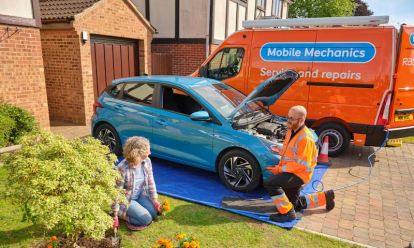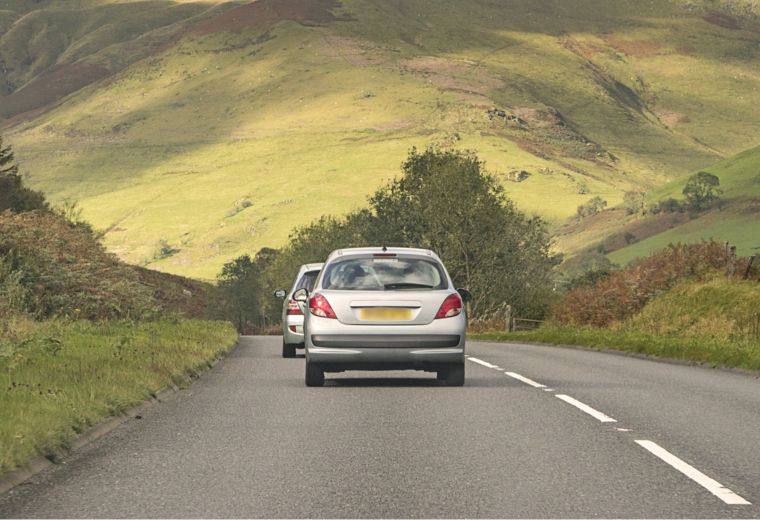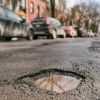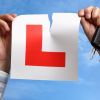Excessive speed, poor judgement, or a lack of patience can quickly transform a simple overtaking manoeuvre into a serious accident. That's why it's important to take your time and evaluate the situation in full before attempting to pass another vehicle.
To help you stay safe on the road when overtaking, we've put together this useful how to guide to provide all the information you need to stay safe on the road.
What is overtaking?
Overtaking is a term that is used to describe the process of a vehicle passing another road user.
This could be a parked car, a slow-moving vehicle or a cyclist. Overtaking can also be used to describe a vehicle passing a horse rider, pedestrian or obstruction in the road.
The rules for overtaking safely and confidently
Whether you are overtaking a slow-moving car on a single-lane road or passing multiple vehicles on the motorway, it's important to follow some simple but essential rules for overtaking.
Here are 10 top tips to staying safe when overtaking another road user:
- Make sure the road is clear. Do you have a clear line of vision? Will there be enough space (around 100 metres) ahead after overtaking? Remember, you’ll not only need enough space to speed up to overtake, but also space to pass the car in front and cross back over in front without causing them to slow down
- Check for other road users who may be overtaking you. Don't forget to look in your mirrors for other road users that may be overtaking you (this is especially true on motorways and dual carriageways)
- Take care at night and in poor weather conditions. Be mindful of the road conditions, it's harder to see other vehicles and judge speed and distance in poor visibility or at night
- Ask if it’s legal to overtake. Check for ‘no overtaking’ signs on the road and be aware of any potential hazards ahead (such as a pedestrian crossing or a junction)
- Do not overtake if you can't see the way is clear. You should never overtake when approaching a bend or corner
- Give way to oncoming vehicles when passing a parked car. You should always stop and allow oncoming vehicles to pass before overtaking a parked car or an obstruction on your side of the road
- Be mindful of your vehicle's performance. Are you driving with passengers or a heavy load in the boot? Are you overtaking uphill? These situations will impede your car's acceleration and may affect your ability to overtake safely
- Don't get too close to the vehicle in front. Always drop back slightly before overtaking. Driving too close will obscure your view of the road and may result in a serious accident if the driver ahead has to make a sudden stop
- Mirrors, signal, manoeuvre. Check your mirrors and make sure the road is clear before making a signal to overtake (don't forget to check your vehicle's blind spot). Ensure you have enough space to complete the manoeuvre and accelerate assertively to pass quickly and in a controlled way
- Don’t cut up the driver you’ve overtaken. As a rule of thumb, don’t start to pull back across into your lane until you can see the entire overtaken car in your central rear-view mirror. Then smoothly pull back in and don’t stop accelerating until it’s safe to ease into your normal speed
Is overtaking on a single-lane road illegal?
It is not illegal to overtake on a single-lane road; however, you should make sure the road is clear ahead and there is a suitable gap to perform the overtake safely.
It is important to be aware of the fact that some single-lane roads will have signs and road markings that prohibit overtaking. If you see these road markings or signs, it will make it illegal to overtake another vehicle until you have passed the area where the restrictions are in place.
Can you speed to overtake?
Rule 125 of the Highway Code clearly states the speed limit is the absolute maximum you can drive on any road - overtaking is not exempt from this rule.
Breaking the speed limit for any reason is dangerous and illegal. Speeding could see you hit with penalty points, a hefty fine, or even being banned from the roads entirely.
If you’re caught speeding by the police or a speed camera while overtaking, you could be given a fine up to £2,500 and six penalty points on your driving licence, depending on your speed and the road you’re caught on.
- 10 driving offences you didn’t know were illegal
- Speed cameras – how they work
- Did you know that we offer specialist learner driver insurance?

RAC sale – up to 33% off*
• Roadside cover from £5.29 a month†
• We get to most breakdowns in 60 mins or less
• Our patrols fix 4/5 breakdowns on the spot

Can I overtake more than one car?
It is not illegal to overtake more than one vehicle at a time on a single-lane road, but it must be done in a safe and controlled manner when the road ahead is clear.
You should ensure there is a suitable gap in front of the vehicles you plan to overtake and make sure the vehicle behind you isn't attempting to overtake you.
When should I not overtake?
You should not overtake on a single-lane road in these circumstances:
- In poor weather conditions: such as rain or fog where you are unable to safely see the road in front of you.
- When you don’t have clear visibility of the road: such as on a bend, a hump bridge, or on the brow of a hill.
- When the road markings forbid it: you may think it’s safe, but there may be a hidden hazard you’re unaware of.
- Approaching a potential hazard: such as roadworks, a junction, school crossing, level crossing or a narrowing of the road ahead.
- If the vehicle in front of you is indicating right: even if their positioning in the road implies they’re not turning.
- When instructed not to: signs will tell you when it isn't safe to overtake
Can I overtake if there’s double white lines?
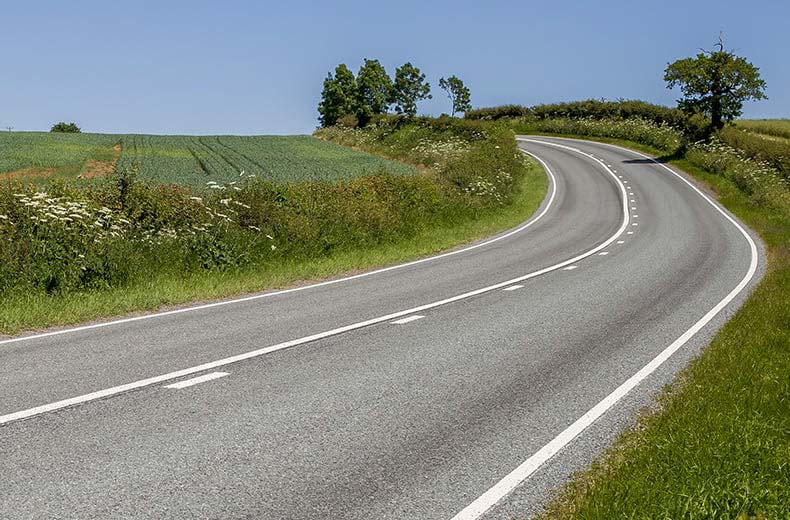
It is illegal to overtake if there are road signs or markings prohibiting it. These road markings appear as variations on double white lines; where the line nearest to you is broken, where the line nearest to you is solid, or where both lines are solid.
Double white lines where the nearest line is broken
Rule 128 of the Highway Code says you may cross these lines to overtake if it is safe and you can complete the manoeuvre before reaching a solid white line on your side.
Double white lines where the nearest line is solid
Rule 129 of the Highway Code says you must not cross or straddle these lines unless it is safe and you need to enter adjoining premises or a side road.
There is one exception however; you may cross the line to pass a stationary vehicle, or overtake a pedal cycle, horse or road maintenance vehicle, if they are travelling at 10 mph (16 km/h) or less.
Double white lines where both are solid
These are used to prohibit drivers from travelling in an area of the road used by the opposing flow of traffic, generally where overtaking visibility is restricted.
You must not overtake if it means crossing or straddling these double solid lines.
Learner Driver Car Insurance
Only pay for the cover you need until you’ve passed your test. Get learner driver insurance so you can practice outside of your lessons.


How should I overtake a horse rider?
You should reduce your speed when approaching a horse rider and be careful not to drive too close (as this may stress or panic the horse). Watch out for signals from the rider to slow down or stop, as they may be about to make a turn or change direction.
To overtake a horse rider, give them as much room as you safely can and pass slowly with the volume of your radio turned down.
Do not sound your horn or accelerate quickly away from the horse rider, as these are things that could easily spook the horse and cause an accident.
How should I overtake a cyclist?
As per Rule 163 of the Highway Code, you should give cyclists at least as much room as you would a car when overtaking. This usually means 1.5 metres (similar in width to an open car door).
Reduce your speed as you approach the cyclist and ensure the road ahead if clear of traffic before attempting to pass. Do not overtake if you are approaching a bend or corner and be mindful of puddles as splashing the cyclist could cause an accident.
If the cyclist looks over their shoulder as you are following them then it may mean they intend to make a turn or change direction - you should give them time and space to do this.
Get a service or repair at home
RAC Mobile Mechanics can come to you, saving you the hassle of going to a garage.
